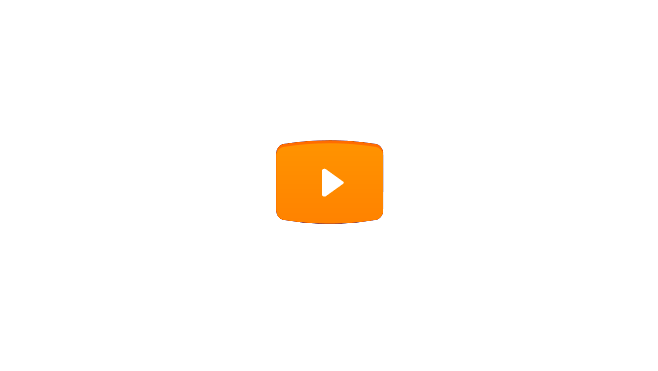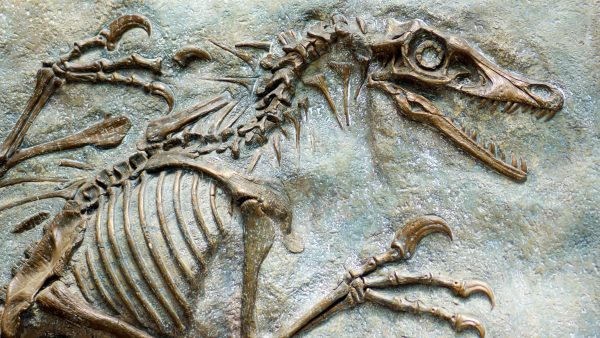Mold Fossils Definition
Mold fossils are hollow spaces left in rock by animal or plant remains that have dissolved. For example, they may retain shell ridges.
View Lesson on The Fossil Record
Become a member to get full access to our entire library of learning videos, reading material, quiz games, simple DIY activities & more.
Become a member to get full access to our entire library of learning videos, quiz games, & more.
Plans & Pricingto watch this full video.

Access All Videos
and Lessons, No Limits.
Access All Videos

No credit card required,
takes 7 sec to signup.
No card required

Ready-to-go lessons
that save you time.
Ready-to-go lessons
If you are on a school computer or network, ask your tech person to whitelist these URLs:
*.wistia.com, fast.wistia.com, fast.wistia.net, embedwistia-a.akamaihd.net
Sometimes a simple refresh solves this issue. If you need further help, contact us.
The Fossil Record
Fun Facts
- Molds form when buried remains of plants and animals decompose.
- Trace fossils can be molds and casts.
- Molds can fill with minerals, forming cast fossils.
Why Do We Need To Know About Mold Fossils
Learning about mold fossils helps us know more about the history of life on Earth. These fossils are like nature’s snapshots, showing us what the world looked like long ago. This is important for jobs in science like studying old life forms (paleontology), the environment (environmental science), and living things (biology). Knowing about the past helps us understand our world today and plan for the future.
Also, finding and studying mold fossils is useful in other areas like studying rocks (geology), ancient human history (archaeology), and even in building things like roads and buildings (construction and civil engineering). For example, people who study rocks use mold fossils to learn more about how the Earth’s surface was formed. Sometimes, when people are building something, they might find important fossils. Knowing about mold fossils can be important for many different jobs.
Frequently Asked Questions
Check out the Full Lesson on The Fossil Record
In this lesson, we learn that:
- Fossils are evidence of past life, such as bones, teeth, and footprints.
- The collection of fossils in the Earth's crust and their placement in chronological order is called the fossil record.
- Scientists study the fossil record to understand how life on Earth has changed over time.
Related Topics
- Air Mass Definition
- Algae Definition
- Amplitude Definition
- Biodiversity Definition
- Body Fossils Definition
- Cast Fossils Definition
- Chemical Change Definition
- Chemical Reaction Definition
- Competition Definition
- Conservation Definition
- Definition Of Living Things
- Definition Of Science
- Earth’s Rotation Definition
- Electric Charge Definition
- Engineering Definition
- Environment Definition
- Fossil Definition
- Fossil Record Definition
- Frequency Definition
- Gas Definition
- Hearing Definition
- Heating And Cooling Definition
- Inclined Plane Definition
- Landslide Definition
- Lunar Mare Definition
- Matter Definition
- Mold Fossils Definition
- Non-renewable Resource Definition
- Paleontologist Definition
- Phases Of The Moon Definition
- Prey Definition
- Properties Of Matter Definition
- Pull Definition
- Renewable Energy Definition
- Scientist Definition
- Seeing Definition
- Simple Machines Definition
- Star Definition
- Sunlight Definition
- Surface Runoff Definition
- Temperature Definition
- Total Eclipse Definition
- Trace Fossil Definition
- Vibrating Definition
- Water Cycle Definition
- Water Distribution Definition
- Water Quality Definition
- Wind Erosion Definition
Start a Free Trial Today. Get a $5 Amazon Gift Card!
Teachers! Start a free trial & we'll send your gift card within 1 day. Only cards left. Try it now.
Select Grade
Select Subject
This email is associated with a Science Kit subscription. Kit subscriptions are managed on this separate page: Manage Subscription

-
Download InvoiceScience & Math$/yr
-
Download InvoiceScience Only$/yr

access all lessons
• No credit card required •
"My students loved the videos. I started the video subscription in May and used them as a review before the state test, which I know contributed to 100% of my class passing the state test."
Rhonda Fox 4th Grade Teacher, Ocala, Florida
• No credit card required •
"My students loved the videos. I started the video subscription in May and used them as a review before the state test, which I know contributed to 100% of my class passing the state test."
Rhonda Fox 4th Grade Teacher, Ocala, Florida
• No credit card required •
Already a member? Sign In
* no credit card required *

* no credit card required *
* no credit card required *


no credit card required
Skip, I will use a 3 day free trial
Enjoy your free 30 days trial
-
Unlimited access to our full library
of videos & lessons for grades K-5. -
You won’t be billed unless you keep your
account open past your 14-day free trial. -
You can cancel anytime in 1 click on the
manage account page or by emailing us.
-
Unlimited access to our full library of videos & lessons for grades K-5.
-
You won't be billed unless you keep your account open past 14 days.
-
You can cancel anytime in 1-click on the manage account page.
Cancel anytime in 1-click on the manage account page before the trial ends and you won't be charged.
Otherwise you will pay just $10 CAD/month for the service as long as your account is open.
Cancel anytime on the manage account page in 1-click and you won't be charged.
Otherwise you will pay $10 CAD/month for the service as long as your account is open.
We just sent you a confirmation email. Enjoy!
DoneWe use cookies to make your experience with this site better. By using this site you agree to our use of cookies. Click "Decline" to delete and block any non-essential cookies for this site on this specific property, device, and browser. Please read our privacy policy for more information on the cookies we use.Learn More
We use cookies to improve your experience. By using this site, you agree to our use of cookies. Click "Decline" to block non-essential cookies. See our privacy policy for details.Learn More



























































































































